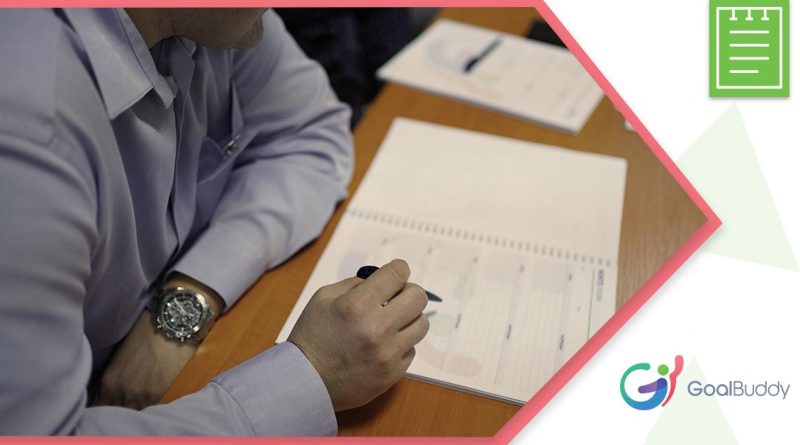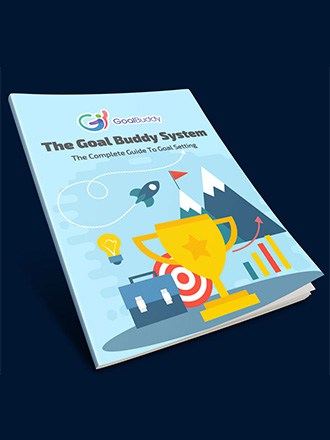A goal you work on every day
A daily effort on a given objective… Is this a good idea? Well, it’s something quite common for many, including us. We’ve all been through this – we set our minds on something important and then we start doing it every single day.
“I will try to read a book for half an hour before going to bed”. “I will exercise each morning”. We are very much inclined to do so when highly motivated and excited about something. After all, it is human nature that compels us to do so.
But most often than not it’s a trap that will shut down any possibility for success we might have. Fortunately, there are two ways to go around it and still manage to keep that kind of promise. But first things first…
Why is it so easy to make such a mistake?
We already discussed the “rights” and “wrongs” in defining goals. In our experience, it’s better to choose the action instead of the objective as a measurement of your progress. For example, instead of “Read 3 books in 3 months”, we should be wording it as “I will read for half an hour every day in the next 3 months aiming at finishing 3 books”.
For many aspects of life, that might make sense. This is true when it comes to something new, a big dream that fills you with energy and excitement. But even if it’s something not so grand which still requires certain perseverance you can always tell yourself: “Well, it shouldn’t be such a big deal to find the time, it’s only 30 minutes after all”.
That’s exactly the logic that drives us. It’s much easier to go into that mode when a habit of ours is involved.
What is the problem
As much as you may think that you are firmly in control of your life the unpredictability of reality will take its toll. We can guarantee that there will be a day when you won’t be able to keep the “every day” part.
And then, at the weekly meeting with your Goal Buddy, you won’t be able to claim you did it. Our mind works in such a way that this will be registered in the sub-consciousness as a failure.
Not fulfilling your commitment inevitably brings in a sense of disappointment and regret. Feelings like that can become a point of reversal and after a series of successes, you could easily descend into a downward spiral of self-recrimination and doubt.
Negative self-esteem will likely be reinforced. Thankfully, we are convinced that it’s possible to break out of this vicious circle.
Two different paths to take
But let’s voice here a disclaimer of sorts first. These are what we have found to be most productive. There are probably many more methods but these two are those that do the job for us. And since so much in goal-setting is based on psychology we have to say once again that personal preferences play a significant role.
Approach # 1: Defining a minimum
Niki is a big fan of this one simply because he is the type of guy who would never settle for less and would always expect more from himself.
Here is what we have to do:
First, we set out to act for just a few days. For example, “I’ll get up early in the morning to write a couple of pages for my book in the next 4 days this week.” That means we have a bit more realistic expectations of ourselves. We try to stay above the minimum and yet make some progress. After a while, we gain confidence and an overall positive emotion out of the small steps forward.
(By the way, that’s how we did write our book.)
The pluses of this approach…
It would be a good fit for you if you are someone who doesn’t look for excuses. If you are anything like Niki, exercising 3+ times a week will easily turn into 5 or even 7 times. Let’s say you enjoy biking and you start doing it with the initial aim of 3 days in a roll but then you feel great and decide why not go for the extra one or two. At some point, your attitude will become “The more, the better”.
All in all, you will never find yourself in a situation where you have to say to yourself, “I failed”. Plus, the chances to be on the winning side go dramatically up.
… and the downside
The risk is to go down the path of least resistance and be satisfied with the initial minimum effort.
It’s not a good idea to set a goal by trying to avoid any challenge. The issue isn’t the words you use but how you see the whole process of setting an objective and then working on it till it is achieved.
Approach # 2: Defining exceptions
This is Ivan’s preferred modus operandi – he sets in advance those scenarios when he doesn’t have to stick to the rule.
For example, the objective is not to eat after 8 pm. But he knows that it’s not likely to happen all the time. So, he lists several situations in which it is Okay to have a late dinner – either work or social commitments. And this makes perfect sense, right?
Ivan likes it because he is very much inclined to do his best to pursue the maximum.
“I try hard to act every day being fully aware of all those events that might prevent me from reaching the objective. In any other case, I will be doing my best, i.e. my mind is focused on how to act and not on how to avoid doing anything.”
The pluses of this approach…
If you are like Ivan you’d better aim at taking full advantage of generated momentum to create a good habit. This transpires when your daily work is coupled with the outlined special cases for a long enough time. You will be able to perform effortlessly something that became an indispensable part of your daily routine.
… and the downside
The keyword here is “in advance”. The tricky part is that you need to know from the very beginning what set of circumstances will determine the type of exceptions. Otherwise, you may end up creating too many loopholes. Sure enough, “I don’t feel like it…” is simply an excuse.
The other factor here is to know well yourselves and have enough previous experience on how to deal with the dynamics of your everyday life. You can’t just quickly go over all the instances where you will need a break. One must be careful and meticulous when analyzing what needs to be assigned as an exception.
The greater point
You shouldn’t see these two methods as an opportunity to skip on the hard work. They are more like an option not to be too uncompromising, too tough on yourself, i.e. getting completely under the attitude of “all or nothing”.
Things will be much better if we accept that we are human after all, that the unforeseen will happen, and that we still do what we can and move forward with our dreams.
When you look back and realize how much has been done and achieved you will have the opportunity to perceive yourself as a winner. This will give you the courage to set bolder goals that were otherwise seen as impossible.
And how could our system help
It is most important to have a Buddy.
First, at the time of defining the long-term vision, you will discuss together the direction of fulfilling your bigger dreams in a gradual forward advancement.
This person will be next to you in setting the 90-day goals and determining the best way to set them.
And of course, when you get to the weekly steps, you will choose together your actions for the week. At each of the weekly meetings, there will be the questions that help to make sense of what is best for you.
So, in time you will gradually adjust the course and find the right path.
A summary
It is easy to declare to yourself as well as everybody else that from now on you will be going to the gym every single day. The hard part comes after that.
Attitude is of paramount importance and you will do best when you focus on the real issues in life and ignore those that are just distractions.
And let’s put these two approaches in one sentence. You, either set up a minimum effort and then try to do more, or you outline in advance the few exceptions in your everyday work. Both of these are a win-win situation because you achieve the goal and learn more about yourself. The whole process will result in more confidence that will open the way for tougher challenges.
And if we could ask you now – “What are your methods of dealing with the issue?”


